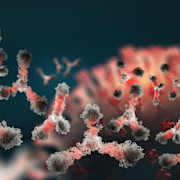- Science News
- Frontiers news
- Frontiers’ volunteers: a chance for a better future
Frontiers’ volunteers: a chance for a better future
Frontiers’ volunteers have always been at the forefront of community and societal responses. This week, we talk to fellow Fronton Aurélie Pando, review operations specialist at Frontiers in Psychology, about volunteering for Planéte Enfants & Developpement, a child protection association that responds to the urgent need to protect children in danger while educating, growing, and integrating these future citizens.

Photo credit: Frontiers
What is your background? What is your role at Frontiers?
I am a French native but I’ve been living between the UK, Ireland and Spain most of my life. My studies are in Languages with English, Spanish, and Italian; I’m also trained as an Interpreter. I am now based in Manchester and have joined Frontiers 9 months ago where I work as a review operations specialist for the Psychology Journal. I currently look after the Language Sciences, Cultural, Developmental and Paediatric Psychology sections. My team ensures that every manuscript submitted to the journal goes through a high quality, rigorous, and efficient peer review while also supporting editors, reviewers and authors to apply best practices and editorial policies throughout the process.
What does the organization you volunteered for do?
Planéte Enfants & Developpementis a non-profit organization which mission is to provide the means for families, teachers, local associations, and public authorities in developing countries to create and sustain a healthy and positive environment for disadvantaged children to grow up in and offer them a chance for a better future. They operate in such countries as Cambodia, Vietnam, Nepal, India and Burkina Faso either in rural areas or in the poorest urban neighborhoods. As well as promoting human rights, equal opportunities, child protection, and fighting against child trafficking and gender-based violence, their activities encompass building and renovating schools with a particular focus on early years education, providing water sanitation or creating facilities for maternal and child health amongst others.
What was your motivation for choosing it?
Having volunteered for another NGO with a field of action in developing countries in the past, I’m well aware of the difficulties for these organizations to sustain their missions in geographies where help is needed the most. Due to the economic downturn of many developed countries, state and public fundraising has been constantly dropping, and aid budgets have been severely impacted by the pandemic. As a mother of two young boys, I feel even more concerned that far too many mothers and children across the world are living in the worst possible conditions with no opportunities at all for a better future, I believe Planéte Enfants & Developpement’s strategies to improve the situation can make a real difference for a lot of children and their families.
What exactly did you do as part of your volunteering?
Due to the lack of funding, humanitarian organizations must rely increasingly on volunteers, not only in the field, but also to raise funds or manage their communication. I translated several documents such as presentations, information leaflets, project development plans and bulletins for Planéte Enfants & Development, hoping to help them raise awareness about their mission as well as finding new sources of funding and patrons for their projects.
What did you learn from the experience?
Translating these documents for Planéte Enfants & Developpement was a very interesting and at times eye-opening experience. While we are all aware of the pandemic effect on children education worldwide, the situation for children who live in countries where policies to protect them and ensure they grow up in a safe environment and have access to education are lacking, is extremely dire. But there is hope as well, thanks to organizations such as Planéte Enfants & Developpement cooperating with local associations and governments to improve policies, raising awareness among communities, and building schools and shelters and also forward-thinking companies like Frontiers that offer their employees the opportunity to dedicate some of their work time every year to a good cause of their choice. Any individual or collective act can make a real difference for these underprivileged children and their future.
For more than a decade, Frontons have been showing a great passion and big heart for the most pressing world causes, both as scientists and as citizens of the world. At Frontiers, we are committed to contributing to communities in a meaningful and sustainable way and encourage our people to participate in charity activities.

Frontiers is a signatory of the United Nations Publishers COMPACT. This interview has been published in support of the United Nations Sustainable Goal 4: Quality Education
About Frontiers
Frontiers is the 3rd most-cited and 9th largest research publisher. We publish groundbreaking discoveries by the world's top experts. Scientists empower society and our mission is to accelerate scientific discovery by making science open. We place the researcher at the center of everything we do and enable the research community to develop the solutions we need to live healthy lives on a healthy planet. Featuring custom-built technology, artificial intelligence, and rigorous quality standards, our research articles have been viewed more than 1.4 billion times, reflecting the power of research that is open for all.







